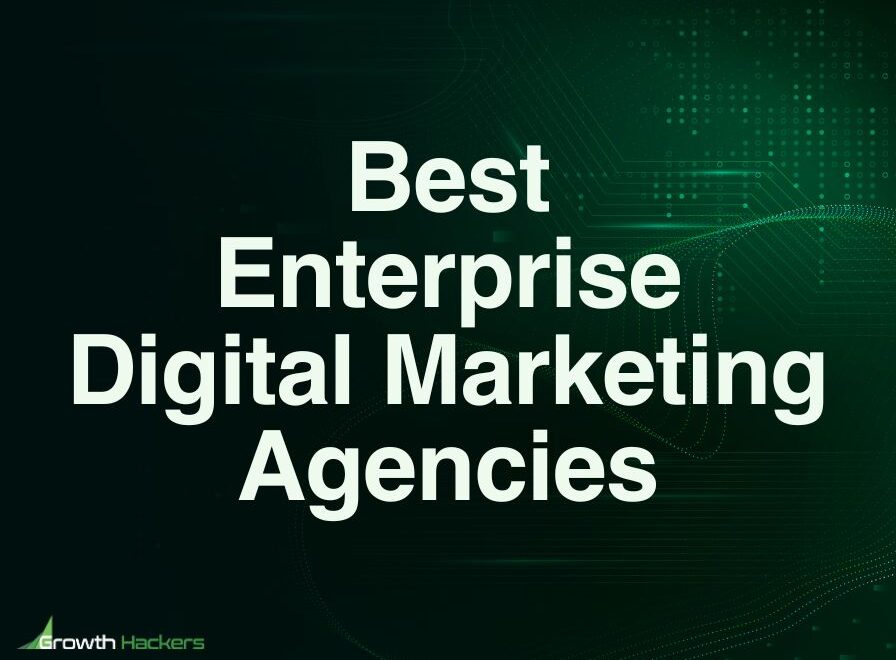Marketing management is the backbone of successful business profits. It is the art and science of identifying clients needs and creating strategies to effectively meet them. Think of it as the captain of a ship, steering the entire marketing effort toward profitable shores. In a world of competitors, mastering it is non-negotiable for businesses aiming for long-term success. But what exactly is this? Is it just about advertising or marketing by the marketing department? Or is it a multifaceted approach encompassing marketing strategy or marketing plan, creativity, and analytics? This guide will unravel all these questions and provide actionable insights into achieving excellence in marketing plans and marketing strategy.
Marketing management isn’t just an optional function; it’s the lifeline of any organization. Without it, even the best products and services can fail to capture the attention they deserve. Why is it so crucial? For starters, it aligns a company’s products or services with target market demands. Moreover, it drives innovation, enhances client satisfaction, and boosts profitability. Let’s dive deeper into the fundamentals of marketing management and its transformative role in modern business landscapes.
What is Marketing Management?
Marketing management involves planning, executing, and overseeing a company’s marketing strategies. It ensures that every effort aligns with the organization’s goals and resonates with the target audience. From analyzing consumer behavior to launching impactful campaigns, it integrates various disciplines to deliver results.
The process is dynamic, adapting to trends, technologies, and client preferences. Successful strategic marketing management combines creativity and details-driven decision-making to maximize a brand’s target market shares and client loyalty in marketing objectives.
Evolution of Marketing Management
The journey of strategic marketing management is as old as trade itself. What began with barter systems evolved into formalized practices during the Industrial Revolution. Over time, the focus shifted from merely selling products to understanding client needs and creating value. Today, it thrives on digital advancements and globalization. Social media and AI have revolutionized how companies interact with their audiences.
2 Key Objectives of Marketing Management
1. Understanding Client Needs
One of the primary goals of marketing management is to understand what customers want. This requires in-depth market research, consumer behavior analysis, and feedback loops. Businesses gather insights through surveys, social media monitoring, and direct client engagement. By identifying needs and preferences, companies can tailor their offerings to meet those demands effectively.
Furthermore, understanding client pain points allows brands to design solutions that genuinely address problems, creating a sense of trust and reliability. Marketing managers use gadgets like Personas and Journey Maps to visualize how a product fits into a customer’s life, enhancing its value. When businesses align their objectives with client expectations, they not only capture market share but also build long lasting relationships in marketing plan.
2. Building Brand Awareness and Enhancing Customer Satisfaction
Without visibility, even the most innovative products can go unnoticed. Marketing management focuses on building brand awareness through consistent messaging and strategic campaigns. Brand awareness campaign can include partnerships with influencers, engaging video content, and interactive social media strategies. Events, sponsorships, and collaborations also play a key role in ensuring a brand stays in the public eye. Consistency in messaging across all channels creates a recognizable identity that customers trust.
Happy customers are loyal customers. Marketing management ensures that businesses not only attract new clients but also keep existing ones satisfied. Client satisfaction involves delivering on promises, providing excellent support, and continuously improving products or services.
Offering personalization, such as curated recommendations or loyalty rewards, makes customers feel valued. Addressing complaints swiftly and efficiently is another critical factor in maintaining satisfaction. Customers remember how they are treated during challenging times, and businesses that prioritize their concerns often turn skeptics into loyal advocates.
Want to maximize your time and goals with marketing management?
Contact Growth Hackers
Core Functions of Marketing Management
Market Research and Analysis
Every successful marketing campaign begins with thorough research. Market research allows businesses to gather insights into client needs, preferences, and buying behaviors. By analyzing market trends and competitor strategies, marketing managers can identify opportunities and mitigate risks.
Marketing analysis involves evaluating the demand for products, studying client demographics, and predicting future trends. gadgets like SWOT analysis (Strengths, Weaknesses, Opportunities, Threats) help businesses position themselves strategically.
Strategy Development and Marketing Implementation
Crafting a marketing strategy is a pivotal function of marketing management. It outlines the roadmap for achieving business goals. Strategy development includes defining target audiences, setting objectives, and selecting appropriate marketing channels.
For instance, a company targeting millennials might prioritize digital platforms like Instagram and TikTok, whereas a B2B business may focus on LinkedIn or email campaigns. The strategy should be flexible to adapt to market dynamics while maintaining focus on long-term goals.
This stage involves putting the strategy into action. From launching advertisements to organizing events, marketing implementation translates plans into tangible results. It requires coordination between various teams, such as creative, sales force, and client service.
Performance Evaluation
No marketing effort is complete without assessing its performance. Performance evaluation involves measuring the outcomes of campaigns against predefined objectives. Metrics like return on investment (ROI), customer acquisition cost (CAC), and customer retention rate (CRR) help gauge success.
By analyzing these metrics, businesses can identify what worked, what didn’t, and how to improve future campaigns. Continuous evaluation is essential for refining strategies and staying competitive in a rapidly changing market.
Components of Effective Marketing Management
The Role of the Marketing Mix
The marketing mix, often referred to as the 4Ps—Product, Price, Place, and Promotion—is a cornerstone of marketing management. Each component plays a critical role in shaping a brand’s marketing strategy:
Product: Understanding what the customer needs and offering solutions through innovative products or services.
Price: Setting a competitive price point that reflects value while ensuring profitability.
Place: Choosing the right distribution channels to make products accessible to target audiences.
Promotion: Leveraging advertising, public relations, and sales promotions to drive awareness and sales force.
Customer Relationship Management
Customer Relationship Management (CRM) systems enable businesses to nurture relationships with their clients. These platforms act as centralized hubs for tracking customer details, interactions, and preferences. With insights provided by CRM gadgets, businesses can create personalized marketing campaigns, ensuring they address individual customer needs effectively.
For example, automated email campaigns triggered by specific actions, such as abandoned carts or recent purchases, keep customers engaged. CRM systems also streamline sales processes by providing detailed customer histories, helping teams tailor their approaches.
Analytics and Data-Driven Decisions
Data is the new oil in marketing management professionals. Advanced analytics gadgets allow businesses to track customer behavior, measure campaign effectiveness, and predict trends. By using details to guide decisions, companies can ensure their strategies are both efficient and impactful. For instance, heatmaps, conversion rate (CVR) and click-through rates help identify which parts of a website draw the most attention, guiding design improvements. Gadgets like Google Analytics, Tableau, and Power BI make it easier for marketers to visualize details and act quickly. In today’s fast-paced market, details is not just an advantage—it’s a necessity.
Marketing Management Strategies for Success
Segmentation, Targeting, and Positioning (STP)
Segmentation involves dividing the market into smaller, manageable groups based on factors like demographics, interests, or purchasing behavior. Targeting selects the most promising segments to focus on, while positioning creates a unique brand image to appeal to that audience. This approach ensures that marketing efforts are precise and impactful, reaching the right people with the right message at the right time.
Positioning goes a step further, establishing a brand’s unique identity in the minds of consumers. This could involve highlighting superior quality, affordability, or innovative features. For example, Tesla positions itself as a premium, eco-conscious automotive brand, that appeals to environmentally aware, tech-savvy customers. Together, segmentation, targeting, and positioning ensure marketing resources are used effectively, delivering the right message to the right audience at the right time.
Digital Marketing Integration, Content Marketing and Storytelling
In today’s digital-first world, integrating digital marketing into overall strategies is vital. Techniques like search engine optimization (SEO), pay-per-click (PPC) advertising, and email marketing help brands connect with audiences online. Social media platforms offer powerful gadgets for engagement, enabling real-time interactions and customer feedback.
Compelling content is at the heart of successful marketing efforts or marketing strategy. Whether it’s blog posts, videos, or podcasts, storytelling helps brands resonate emotionally with their audience. A well-crafted narrative can transform a simple product into a solution to the customer’s problems, fostering trust and loyalty. For instance, brands like Airbnb use storytelling made by marketing professionals to showcase real guest experiences, creating an emotional connection with their audience.
Unlock your full potential with marketing management today!
Trends in Modern Marketing Management
Artificial Intelligence and Automation
Artificial Intelligence (AI) is transforming marketing management. From chatbots that provide instant customer service to AI-driven tools that analyze consumer behavior, automation streamlines operations and enhances efficiency. Machine learning algorithms can predict trends, personalize content, and optimize campaigns, enabling marketing teams to focus on marketing strategy and creativity.
For example, AI can analyze thousands of facts points to determine the best time to send promotional emails or suggest product recommendations tailored to individual customers. These capabilities are becoming essential in maintaining a competitive edge.
Sustainability and Ethical Marketing
Modern consumer sustainability trends and ethical practices plays a vital role in marketing management. Marketing management strategies now often include promoting eco-friendly products, reducing environmental impact, and ensuring transparent business practices. This not only builds brand trust but also aligns with the values of socially conscious customers.
Personalization and Hyper-Targeting
Gone are the days of generic advertising or hard marketing efforts. Personalization is now at the forefront of marketing strategies. Through facts collection and analytics, businesses can create hyper-targeted campaigns that speak directly to individual preferences and behaviors.
For instance, platforms like Netflix and Spotify use personalized recommendations to enhance user experience, fostering loyalty and engagement. Marketing managers who harness the power of personalization see higher conversion rates and client satisfaction.
The Role of Technology in Marketing Management
1. CRM Tools and Platforms
Customer Relationship Management (CRM) tools like Salesforce and HubSpot are invaluable for marketing management. They centralize customer data, customer tracking, and provide insights to inform decision-making. These platforms also enable marketing teams to automate tasks, manage campaigns, and measure performance effectively. CRM systems empower businesses to nurture relationships, ensuring a seamless customer experience from initial contact to post-purchase support.
2. Social Media Management Tools
Social media is a cornerstone of modern marketing. Tools like Hootsuite, Buffer, and Sprout Social help businesses manage their online presence, schedule posts, and engage with their audience across multiple platforms. These tools also offer analytics to measure performance and refine strategies.
A strong social media presence builds brand visibility, fosters community engagement, and drives traffic to other marketing channels, making it an integral part of the marketing management toolkit.
3. Big Data and Predictive Analytics
Big data allows marketers to access detailed insights into customer behavior and market trends. Predictive analytics takes this a step further, using historical data to forecast future outcomes. For example, businesses can predict seasonal demand for products, optimize pricing strategy, or identify potential churn risks among customers.
The ability to anticipate customer needs and market shifts gives businesses a significant advantage in crafting proactive and effective marketing strategies.
Steps to Build a Successful Marketing Management Plan
Setting Clear Objectives
Every marketing plan begins with well-defined goals. Whether the objective is to increase brand awareness, drive sales, or expand market share, clarity ensures all efforts are aligned. Objectives should follow the SMART criteria: Specific, Measurable, Achievable, Relevant, and Time-bound.
For instance, instead of saying, “Increase sales,” a SMART objective might be, “Achieve a 20% increase in sales within six months through targeted social media campaigns.”
Conducting a SWOT Analysis and Budget Allocation
A SWOT analysis evaluates a business’s Strengths, Weaknesses, Opportunities, and Threats. This tool provides a comprehensive view of the internal and external factors affecting the company. By identifying these elements, businesses can leverage strengths, address weaknesses, seize opportunities, and mitigate threats effectively.
Effective marketing management requires allocating resources wisely. Budgeting involves determining how much to spend on various marketing activities or marketing programs, such as advertising, content creation, and market research. Businesses must strike a balance between investing in high-impact channels and maintaining cost efficiency.
For instance, a small business might prioritize social media and email marketing over costly TV advertisements, ensuring high ROI within a low budget.
Campaign Launch and Monitoring
The final step is execution. Launching a campaign involves coordinating teams, scheduling activities, and deploying marketing efforts materials. However, the work doesn’t end there. Monitoring campaign performance in real-time allows businesses to identify and address issues quickly, ensuring optimal results.
Using tools like Google Analytics or social media insights, marketing managers can track Key Performance Indicators (KPIs) and adjust strategies as needed.
Future of Marketing Management
1. Evolving Roles of Marketing Managers
As technology evolves, the role of marketing managers is expanding. Today’s managers must be data-savvy, tech-driven, and adaptable to navigate a complex marketing programs landscape.
2. The Impact of Emerging Technologies
Emerging technologies like virtual reality (VR), augmented reality (AR), and blockchain are shaping the future of marketing. These tools offer innovative ways to engage with customers and create immersive experiences.
FAQS
1. What is the main purpose of marketing management?
To drive profitability by acquiring new customers, expanding the customer base, and enhancing the company’s reputation.
2. What are the 4 elements of marketing management?
The four Ps—product, price, place, and promotion—form the marketing mix essential for crafting strategies.
3. What are the functions of marketing management?
Key functions include planning, analyzing, and executing strategies to boost customer engagement, sales, and brand awareness.
4. What is the primary focus of marketing management?
To design and implement strategies that achieve business goals like increasing brand awareness and marketing campaigns or boosting profits.
5. What is the key point of marketing management?
To align goals with consumer insights, create targeted campaigns, and grow brand recognition through engagement.
Final Thoughts on Marketing Management
Marketing management is a dynamic and multifaceted discipline that lies at the heart of business success. From understanding customer needs to leveraging cutting-edge technology, effective marketing management ensures businesses remain competitive and relevant in an ever-changing world. By mastering its principles and strategies, companies can achieve lasting growth and customer satisfaction.
Are you a business owner looking for an expert in marketing management? Work with us at Growth Hackers, an innovative digital marketing agency.
Here at Growth Hackers, we cut through the noise to help businesses worldwide thrive. We don’t do fluff—only results. By working with us, we’ll help unlock your full potential, by boosting productivity, generating high-quality leads, marketing, optimizing conversion rates, analyzing key facts, and increasing both customer acquisition and retention. Our focus goes beyond brand visibility; we implement strategies that drive measurable growth, ensuring your business not only succeeds but also excels.
If you have any questions, comments, or positive stories to share, we’d love to hear them. Contact Growth Hackers if you need an expert on marketing management. Start marketing today and transform your digital presence into the success of your business!











